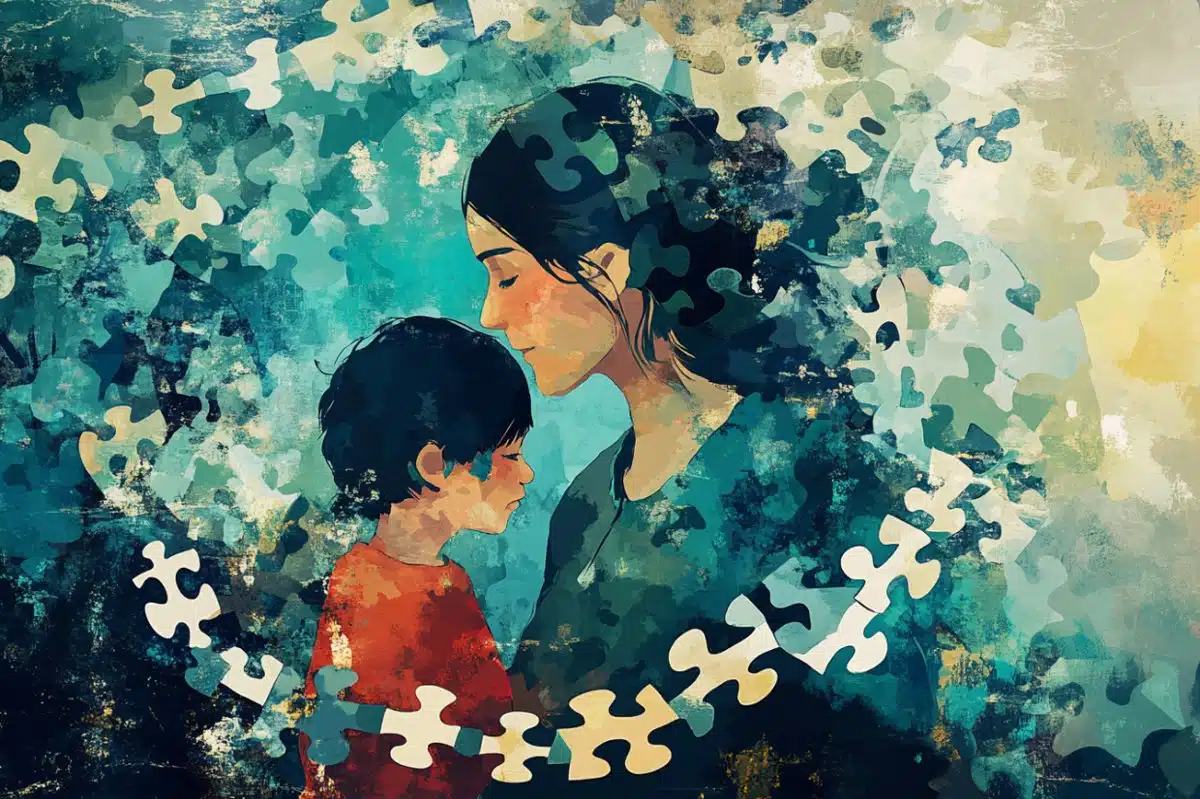Neuroscience News
A new study sheds light on how childhood maltreatment can lead to impaired empathy and increased risk of child abuse in adulthood. Researchers found that mothers who experienced abuse as children often struggle with emotional empathy and depressive symptoms, both of which negatively influence parenting. Emotional overwhelm from their children’s feelings can increase stress, making them more likely to perpetuate the cycle of abuse…….Continue reading…..
By: Naoki Tsukamoto
Source: Neuroscience News
.
Critics:
Child abuse can result in immediate adverse physical effects but it is also strongly associated with developmental problems and with many chronic physical and psychological effects, including subsequent ill-health, including higher rates of chronic conditions, high-risk health behaviors and shortened lifespan. Child abuse has also been linked to suicide, according to a May 2019 study, published in the Cambridge University Press.
Maltreated children may be at risk to become maltreating adults. Physical and emotional abuse have comparable effects on a child’s emotional state and have been linked to childhood depression, low self-compassion, and negative automatic thoughts. Some research suggests that high stress levels from child abuse may cause structural and functional changes within the brain, and therefore cause emotional and social disruptions.
Abused children can grow up experiencing insecurities, low self-esteem, and lack of development. Many abused children experience ongoing difficulties with trust, social withdrawal, trouble in school, and forming relationships.
Babies and other young children can be affected differently by abuse than their older counterparts. Babies and pre-school children who are being emotionally abused or neglected may be overly affectionate towards strangers or people they have not known for very long. They can lack confidence or become anxious, appear to not have a close relationship with their parent, exhibit aggressive behavior or act nasty towards other children and animals.
Older children may use foul language or act in a markedly different way to other children at the same age, struggle to control strong emotions, seem isolated from their parents, lack social skills or have few, if any, friends. Children can also experience reactive attachment disorder (RAD). RAD is defined as markedly disturbed and developmentally inappropriate social relatedness, that usually begins before the age of 5 years.
RAD can present as a persistent failure to start or respond in a developmentally appropriate fashion to most social situations. The long-term impact of emotional abuse has not been studied widely, but recent studies have begun to document its long-term consequences. Emotional abuse has been linked to increased depression, anxiety, and difficulties in interpersonal relationships (Spertus, Wong, Halligan, & Seremetis, 2003).
Victims of child abuse and neglect are more likely to commit crimes as juveniles and adults. Domestic violence also takes its toll on children; although the child is not the one being abused, the child witnessing the domestic violence is greatly influenced as well. Research studies conducted such as the “Longitudinal Study on the Effects of Child Abuse and Children’s Exposure to Domestic Violence”, show that 36.8% of children engage in felony assault compared to the 47.5% of abused/assaulted children.
Research has shown that children exposed to domestic violence increases the chances of experienced behavioral and emotional problems (depression, irritability, anxiety, academic problems, and problems in language development). The immediate physical effects of abuse or neglect can be relatively minor (bruises or cuts) or severe (broken bones, hemorrhage, death). Certain injuries, such as rib fractures or femoral fractures in infants that are not yet walking, may increase suspicion of child physical abuse, although such injuries are only seen in a fraction of children suffering physical abuse.
Cigarette burns or scald injuries may also prompt evaluation for child physical abuse. The long-term impact of child abuse and neglect on physical health and development can be:
- Shaken baby syndrome. Shaking a baby is a common form of child abuse that often results in permanent neurological damage (80% of cases) or death (30% of cases). Damage results from intracranial hypertension (increased pressure in the skull) after bleeding in the brain, damage to the spinal cord and neck, and rib or bone fractures.
- Impaired brain development. Child abuse and neglect have been shown, in some cases, to cause important regions of the brain to fail to form or grow properly, resulting in impaired development. Structural brain changes as a result of child abuse or neglect include overall smaller brain volume, hippocampal atrophy, prefrontal cortex dysfunction, decreased corpus callosum density, and delays in the myelination of synapses.
- These alterations in brain maturation have long-term consequences for cognitive, language, and academic abilities. In addition, these neurological changes impact the amygdala and hypothalamic-pituitary-adrenal (HPA) axis which are involved in stress response and may cause PTSD symptoms.
- Poor physical health. In addition to possible immediate adverse physical effects, household dysfunction and childhood maltreatment are strongly associated with many chronic physical and psychological effects, including subsequent ill-health in childhood, adolescence and adulthood, with higher rates of chronic conditions, high-risk health behaviors and shortened lifespan.
- Adults who experienced abuse or neglect during childhood are more likely to have physical ailments such as allergies, arthritis, asthma, bronchitis, high blood pressure, and ulcers. There may be a higher risk of developing cancer later in life, as well as possible immune dysfunction.
- Data from a recent study supports previous findings that specific neurobiochemical changes are linked to exposure to violence and abuse, several biological pathways can possibly lead to the development of illness, and certain physiological mechanisms can moderate how severe illnesses become in patients with past experience with violence or abuse.
- Recent studies give evidence of a link between stress occurring early in life and epigenetic modifications that last into adulthood.
A long-term study of adults retrospectively reporting adverse childhood experiences including verbal, physical and sexual abuse, as well as other forms of childhood trauma found 25.9% of adults reported verbal abuse as children, 14.8% reported physical abuse, and 12.2% reported sexual abuse. Data from the Centers for Disease Control and Prevention (CDC) and Behavioral Risk Factor Surveillance System corroborate these high rates.
There is a high correlation between the number of different adverse childhood experiences (A.C.E.s) and risk for poor health outcomes in adults including cancer, heart attack, mental illness, reduced longevity, and drug and alcohol abuse. An anonymous self-reporting survey of Washington State students finds 6–7% of 8th, 10th and 12th grade students actually attempt suicide. Rates of depression are twice as high. Other risk behaviors are even higher.
There is a relationship between child physical and sexual abuse and suicide. For legal and cultural reasons as well as fears by children of being taken away from their parents most childhood abuse goes unreported and unsubstantiated. It has been discovered that childhood abuse can lead to the addiction of drugs and alcohol in adolescence and adult life.
Studies show that any type of abuse experienced in childhood can cause neurological changes making an individual more prone to addictive tendencies. A significant study examined 900 court cases of children who had experienced sexual and physical abuse along with neglect. The study found that a large sum of the children who were abused are now currently addicted to alcohol. This case study outlines how addiction is a significant effect of childhood abuse.
Child abuse is a complex phenomenon with multiple causes. No single factor can be identified as to why some adults behave abusively or neglectfully toward children. The World Health Organization (WHO) and the International Society for Prevention of Child Abuse and Neglect (ISPCAN) identify multiple factors at the level of the individual, their relationships, their local community, and their society at large, that combine to influence the occurrence of child maltreatment.
At the individual level, studies have shown that age, mental health, and substance use, and a personal history of abuse may serve as risk factors of child abuse. At the level of society, factors contributing to child maltreatment include cultural norms that encourage harsh physical punishment of children, economic inequality, and the lack of social safety nets. WHO and ISPCAN state that understanding the complex interplay of various risk factors is vital for dealing with the problem of child maltreatment.
Factors related to relationships include marital strife and tension. Parents who physically abuse their spouses are more likely than others to physically abuse their children. However, it is impossible to know whether marital strife is a cause of child abuse, or if both the marital strife and the abuse are caused by tendencies in the abuser.
Parents may also set expectations for their child that are clearly beyond the child’s capability (e.g., preschool children who are expected to be totally responsible for self-care or provision of nurturance to parents), and the resulting frustration caused by the child’s non-compliance may function as a contributory factor of the occurrence of child abuse. A key part of child abuse work is assessment. A few methods of assessment include Projective tests, clinical interviews, and behavioral observations.
- Projective tests allow for the child to express themselves through drawings, stories, or even descriptions in order to get help establish an initial understanding of the abuse that took place
- Clinical interviews are comprehensive interviews performed by professionals to analyze the mental state of the one being interviewed
- Behavioral observation gives an insight into things that trigger a child’s memory of the abuse through observation of the child’s behavior when interacting with other adults or children
A particular challenge arises where child protection professionals are assessing families where neglect is occurring. Neglect is a complex phenomenon without a universally-accepted definition and professionals cite difficulty in knowing which questions to ask to identify neglect. Younger children, children living in poverty, and children with more siblings are at increased risk of neglect.
Child and Adolescent Psychiatry. Oxford University Press.
Social Development, Social Investment, and Child Welfare”.
Encyclopedia of Victimology and Crime Prevention.
What is Child Abuse and Neglect?”.
Child Neglect: Wider Dimensions”.
Child abuse and neglect by parents and other caregivers” “
Definitions of Child Abuse and Neglect in Federal Law”.
The nature and consequences of child maltreatment”
Physical Punishment in Childhood: The Rights of the Child.
Physical punishment of children: lessons from 20 years of research”.“
Violence against children in the home and family”
.
Labels: #ChildhoodAbuse #EndTheSilence #HealingJourney #BreakTheCycle #SurvivorStories #TraumaAwareness #MentalHealthMatters #SafeSpaces #SupportSurvivors #RecoveryJourney #SpeakUp #Advocacy #ChildProtection #Resilience #Empowerment #HealingAfterAbuse #SupportSystem #TraumaProcessing #NeverAgain












Leave a Reply